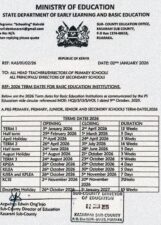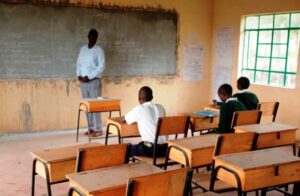Public education in Kenya has long depended on government capitation to support learning operations. However, a recent decision by the National Treasury to slash capitation funding has shifted the financial burden squarely onto the shoulders of already struggling parents.
In the 2024/2025 fiscal year, the Ministry of Education received a reduced allocation, significantly lowering the amount disbursed per student in both primary and secondary schools.
These funds typically cover essentials such as textbooks, exam materials, minor repairs, and utility bills.Schools are now passing the shortfall on to parents in the form of increased levies, PTA charges, and additional development fees.
Some institutions have even delayed reopening due to insufficient funds, and others are warning of imminent closure if the situation persists. For low-income families, especially those with multiple children in school, this presents an impossible choice between basic needs and education.
Parents’ associations have condemned the capitation cuts, urging the government to reconsider. Teachers’ unions like KNUT and KUPPET have also voiced concern, noting that the funding shortfall jeopardizes the quality of education and staff welfare. Some headteachers have resorted to fundraising to meet basic operational needs.
The Treasury’s decision threatens the gains made in free basic education. Without immediate government intervention, the dream of universal education may become elusive for thousands of Kenyan children.






